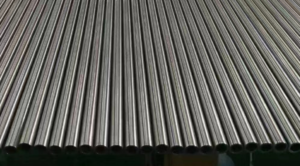As a type of steel with excellent performance, high-speed steel is widely used in mold manufacturing, mechanical processing and other fields. It is also used in the manufacturing of special parts such as medical devices to meet the working needs of special environments. In this article, we will detail the application of high-speed steel in medical device manufacturing.

Application of High-speed Steel in Medical Device Manufacturing:
High-speed steel is an ideal material for medical device manufacturing because of its many advantages.
First, excellent hardness and wear resistance. High-speed steel can meet the needs of dental treatment equipment due to its high hardness and high wear resistance. It is often used in the manufacture of dental drills, grinders and other equipment.
Second, excellent cutting performance, high-speed steel has excellent hardness and cutting performance, and tools made of high-speed steel have very good sharpness. Therefore, they are often used in medical devices to manufacture complex-shaped surgical knives to improve the efficiency and safety of surgery.
Third, good corrosion resistance. Some types of high-speed steel have good corrosion resistance and can remain stable in corrosive environments in contact with body fluids and drugs for a long time. It is often used to manufacture some medical device parts with high strength and wear resistance, such as screws, nuts, shafts, etc.
Fourth, biocompatibility. Specially treated high-speed steel has good biocompatibility and can meet the needs of some special-purpose medical devices. In some medical devices that require human implantation, such as artificial joints, fracture fixators and other medical devices, high-speed steel can be used as the material of the implant.
Although high-speed steel has many advantages in medical device manufacturing, there are also certain limitations that affect the use of the equipment. First of all, it is heavier. Compared with other materials, the high density of high-speed steel makes medical devices heavier, which will affect the user experience after long-term use.
Secondly, the cost is high. As a kind of steel containing high alloying elements, the manufacturing process of high-speed steel is relatively complicated, involving complex processes such as high-temperature smelting and fine processing, which will lead to higher manufacturing costs. This may limit its use in some low-cost medical devices.
In addition, due to the influence of magnetism, high-speed steel is not a strong magnetic material, but some high-speed steel contains magnetic elements such as iron, which will make it have certain magnetism. During use, it may interfere with the use of some medical devices, such as magnetic resonance imaging.
Conclusion
In short, in medical device manufacturing, although high-speed steel has many advantages, choosing high-speed steel as a medical device material requires comprehensive consideration of performance requirements, price cost, biocompatibility and other factors. At the same time, in order to ensure the safety and effectiveness of medical devices, regular maintenance and upkeep are required during use. With the continuous advancement of high-speed steel technology, its application range in medical devices will become broader.
Why Choose Sino Special Metal?
Thank you for reading our article and we hope it can help you to have a better understanding of the application of high-speed steel in medical device manufacturing. If you are looking for high-speed steel suppliers and manufacturers online now, we would advise you to visit Sino Special Metal.
As a leading supplier of high-speed steel from Shanghai China, Sino Special Metal offers customers high-quality high-speed steel at a very competitive price.




